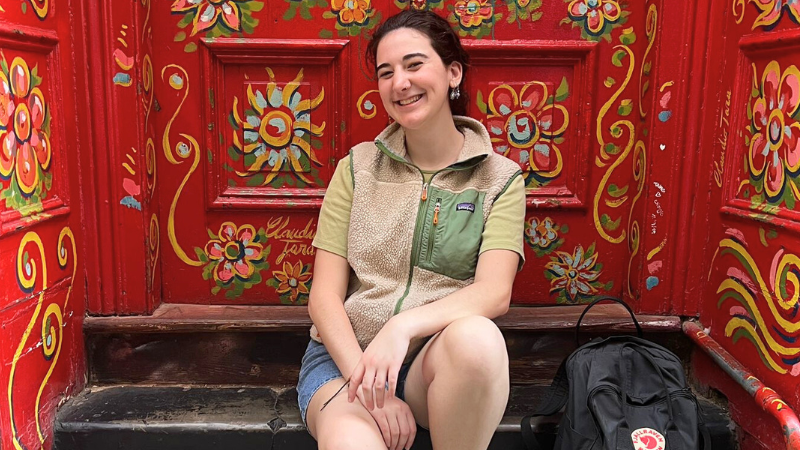Kraft Fellows Stories: A Necessity for Freedom, Equality and Peace
Kraft Fellow Yael Bright tells of her experience getting to know people, places and religions in Chile.

The Columbia Global Center in Santiago asked members of the Kraft Global Fellows Program to share reflections on their experience in visiting Chile under an interfaith and inter-cultural exchange trip led by the University Chaplain's Office.
The following is the personal account of Yael Bright, a third year student in the General Studies Dual BA program with Tel Aviv University, studying Communication, English Literature, and Creative Writing.
Things I Thought I Knew Upon Entry to Santiago, Chile:
1.) By growing up in Los Angeles, Spanish is a language that feels distant to a point of no return yet intimately close simultaneously.
2.) Honeydew is the most inferior fruit of the melons and corporate fruit plate at large.
3.) Mayonnaise is simply abhorrent under all circumstances except perhaps the late-night bodega sandwich craving.
4.) Absolutely nothing regarding the nuances of Chile’s socio-economic, religious, and political divides.
But after traveling to Chile, I was able to understand both honeydew and multicultural coexistence from a different angle, understanding its dire need to the diverse fruit cup of campus life and beyond.
As a member of the Kraft Global Fellowship, a writer, and a relatively spiritual individual, I felt it important to keep my mind open (with a decent amount of prerequisite research of course), but in the grand scheme of things, there was no amount of reading beforehand that could have prepared me to receive the resonant understanding I currently possess regarding the atmosphere of Santiago and Chile.
Santiago is a city of artists, activists, and changemakers. It has a pulse and a rhythm singing for equality and democracy in its streets, despite its otherwise reserved, quiet disposition. There is an acute attention to Santiago’s vibrancy within the architecture of the city and linguistic architecture of Chilean Spanish, as friendly greetings, affirmations of understanding, and other modes of recognition are entirely unique to the country, multiple different Chileans I met along the way jokingly telling me their first language is Chilean and Spanish second.
And after all has been said and done, my bag and conscious repacked and filled to the rim, I came to the conclusion that somehow the son of an Imam, a Communist Roman-Catholic Priest, a Head Rabbi, a gay rights activist, an archive specialist, a Chilean historian, and political analyst can all agree on the necessity for freedom, equality, and peace. That peace may look different to each person, the semantics of the dogmatic poetry may be different in language, syntax, or complete ideology; but peace itself looks like unconditional freedom, a space in which communist Roman Catholics are not ridiculed for their “naivete.” Where their advocacy for peace is at the forefront of the conversation, and that their trauma, grief, and loss is memorialized globally and respected.
A place where a Muslim individual can express their passion for preserving the bestowed Godly poetry and respective rules of Allah through their dress and ritual in confidence without being ridiculed to a stereotype. A place where Muslims can welcome in the toasted sunlight of the mosque windows in wholehearted sanctity without the fear of being confined to a single tainted conception.
A place where a Jewish community does not need a tight security system, and is open to embracing and celebrating their culture with others in a space that is warm and the environment smiles. Where their prayers are appreciated and listened to in a warm space that is not threatened by triggering vandalism.
Although radically and beautifully different: these communities share Santiago, Chile and hope for their children to dwell in a home. Comfortably.